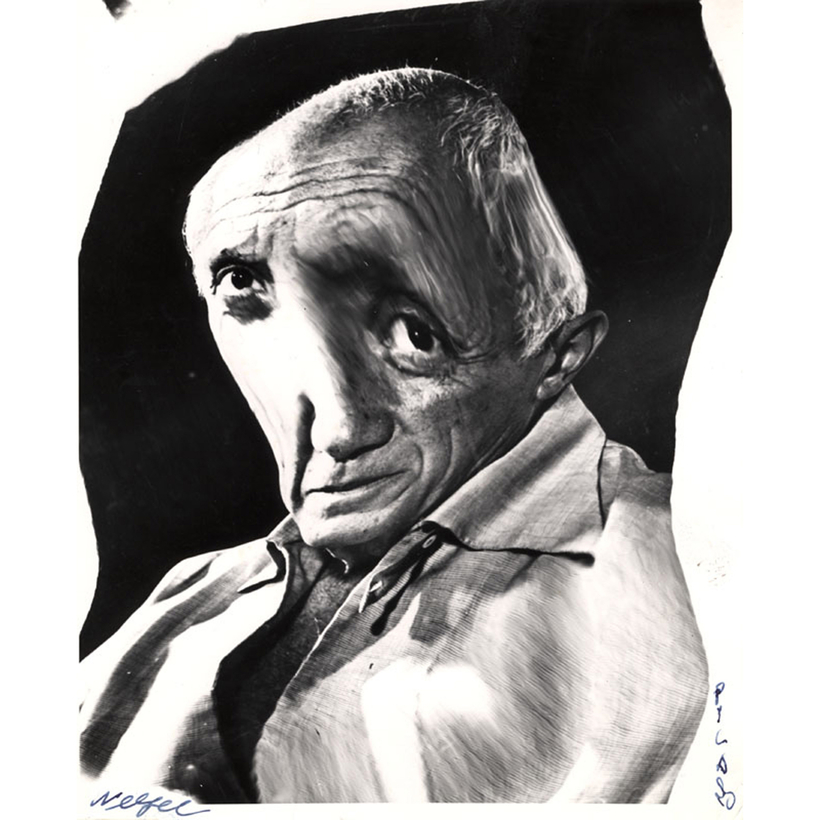About 10 years ago, a student asked to speak with me privately after class. He was a nervous young man, thinking I had all the answers. Finally, he asked, “Is Woody Allen a child molester?” He really thought I would know. I said, “We live in a nation of laws, and according to the law, he is not. There is, however, the court of public opinion.”
That was a long time ago; that conversation is now an artifact. The earth has been scorched by #MeToo and its aftermath. Art is not for art’s sake anymore. Must aesthetes now scurry into a speakeasy, check phones, and hide identities if they want to watch Chinatown, read Lolita, listen to Kind of Blue, or admire Les Demoiselles d’Avignon without the threat of Robespierre?
The feminist memoirist Claire Dederer wondered about the same thing, but rather than going underground, she went viral. It started with a piece in The Paris Review, published in 2017, when cancel culture was being invented, and when Woody Allen lost his film deal with Amazon. Dederer went back and watched Annie Hall and reacted in real time. She wrote:
To watch Annie Hall is to feel, for just a moment, that one belongs to humanity. Watching, you feel almost mugged by that sense of belonging. That fabricated connection can be more beautiful than love itself. And that’s what we call great art. In case you were wondering. Look, I don’t get to go around feeling connected to humanity all the time. It’s a rare pleasure. And I’m supposed to give it up just because Woody Allen misbehaved? It hardly seems fair.

By “misbehaved,” Dederer does not mean being an accused child molester—a legal matter she does not wade into—but marrying one’s girlfriend’s adopted daughter. Dederer is creeped out by it, but still wants her Annie Hall.
There were new rules in 2017, and when many writers would have considered it career suicide to express these views in public, she didn’t care—it spurred the essay on in its beguiling and conflicted voice—and the bidding war for the book that ensued gave evidence of dissent, or at least an industry calculation that there were many others who felt this way but were too afraid to say it out loud.
Most books have opinions. The author has made up her mind, and now she will share them with you. Monsters: A Fan’s Dilemma shows opinions happening in real time.
She read Lolita when she was Lolita’s age and was revolted. She read it again as an adult writer and is still revolted, but she also marvels at Nabokov’s baroque narrative. A story breaks shortly after the death of David Bowie about his taking the virginity of a 15-year-old girl, consensual, but statutory rape. She thought he was like a god! Horrible! But then, so do we! Teenagers of all ages still find succor in him, and should this tawdry story deprive us?
“In certain ways,” she writes, “this is a book about broken hearts, and teenagers are the world’s leading experts on heartbreak.” People should be accountable, sure; however, the idea of Mick Jagger checking in with H.R. is many things, but it is not rock ’n’ roll.
“Genius,” said Norman Mailer, is “transcendence.” Of what? “Of the given.” That guy used to be a very big deal, but he made so much of his monstrousness—he stabbed his wife and, when people tried to help, said, “Let the bitch die”—it was an advertisement for himself.

And yet it is the bargain Dederer wants to take. These monsters gave us genius. What do we do with it now? “It’s easy to think of the quality of genius as justifying bad behavior, but maybe it works the other way around, too,” she writes. “Maybe we have created the idea of genius to serve our own attraction to badness. Maybe we ask these artists to live out our darkest fantasies—and if we give it the label ‘genius,’ then we don’t have to feel guilt for enjoying the spectacle.”
Maybe. Or maybe there is filth in a lot of people—a lot of non-geniuses—but the geniuses are indulged and are made to feel that the rules don’t apply to them. “You can always count on a murderer for a fancy prose style,” said Nabokov’s Humbert Humbert.
Are we, as a culture, still addicted to monstrousness? Aesthetics may be out of fashion, but people still want quality product, and if you, a non-monster, shake out the files of everyone who made something that you love, you will likely find something you do not love—something revolting, criminal, monstrous. We have an imperfect legal system to root out the crime, and an even more imperfect system for deciding whether or not David Bowie’s bad behavior—criminal, if true—can keep you from loving what he gave us.
Still want to put on your red shoes and dance the blues? Up to you. And what about you? Is there any monstrousness in your soul? There has been a binge and purge in the name of purity. Have people been perfected, and will their art become more sublime?
As we get further into the book, we learn there are female monsters, too, including Joni Mitchell, whom Dederer considers a monster because she abandoned her daughter. (That daughter grew up in an upper-middle-class comfort Mitchell was unable to provide in 1965.) But then she moves on from Mitchell as a bad mom to a female artist whose favorite artists are two of the male art monsters who dominate this book. “Most of my heroes are monsters, unfortunately,” she said once, “and they are men. Separating their personalities from their art, Miles Davis and Picasso have always been my major heroes because we have this one thing in common: They were restless. I don’t know any woman role models for that.”
Mitchell said this in 1991, in a completely different world, way before anyone needed a manifesto to elaborate on this point. Here we are. The gaze has shifted. The monster artist and not the art is the only thing that matters now.
Monsters is a pushback, and others will follow. (Lauren Elkins’s Art Monsters comes out in November.) Oscar Wilde said, “No object is so beautiful that, under certain conditions, it will not look ugly.” Joni and Oscar were talking before that wonderful coinage virtue signaling. Dederer proposes an alternative. “The way you consume art doesn’t make you a bad person or a good one,” she writes. “You’ll have to find some other way to accomplish that.”

David Yaffe is a professor of humanities at Syracuse University. He writes about music and is the author, most recently, of Reckless Daughter: A Portrait of Joni Mitchell. You can read his Substack here


